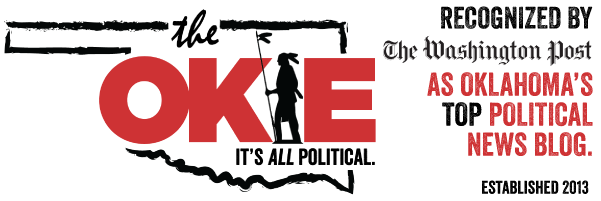OPI’s Blatt Expresses ‘Disappointment’ Over Legislative Session Results
For Immediate Release
Oklahoma Policy Institute Executive Director David Blatt released the following statement on the final results of Oklahoma’s 2017 regular legislative session:
If we look only at the bills that made it through the full legislative process to be signed by the governor, most Oklahomans would view this year’s legislative session as a disappointment. Lawmakers entered the session knowing they needed to confront big problems — like uncompetitive pay that is draining away our most skilled teachers and state workers; a failing, hugely expensive criminal justice system; long waiting lists for mental health treatment, at-home disability care, and other key health services; and a budget that every year falls further behind what’s needed to keep our state prosperous and safe. As the session limps to a close, lawmakers have failed to address any of these problems.
This failure is especially disappointing when we consider the promises made earlier in the year. Throughout legislative session, lawmakers repeated again and again that they would find funding to provide a teacher raise. Governor Fallin, legislative leaders, and experts in the community and law enforcement came together to develop a strong, well-thought-out agenda for criminal justice reform. Hundreds of advocates and lawmakers came to the table with practical revenue solutions to fund essential services and fix Oklahoma’s long-term budget outlook.
By these efforts, we came close to achieving big advances for Oklahoma families, only to crash against obstruction and gridlock in the final days of session. What emerged was a last-minute budget with more damaging cuts as well as legally questionable revenue measures. Most of the burden of this year’s budget shortfall was once again pushed onto low- and middle-income families while sparing the wealthiest households and corporate interests. The last chance for a teacher raise this year was derailed by the Senate’s refusal to cap itemized deductions for very wealthy households. This problematic budget was forced through with little time for Oklahomans to see what was in it or voice their concerns.
Amid these failures, we see an undercurrent of hope for Oklahoma’s future. This year, more than ever before, numerous informed, engaged Oklahomans regularly came to the Capitol or worked within their communities to advocate for better state policies. Popular outcry was key to stopping Oklahoma from moving backwards by allowing an expansion of predatory lending practices or rolling back the smart on crime reforms of State Question 780. Revenue ideas that had never been seriously considered before, despite years of failing budgets, were on the table in final negotiations. Legislative leadership ultimately failed to reach a bipartisan deal on the budget or prevent one member from derailing the work of the majority on criminal justice. But beneath that leadership failure is a rising group of lawmakers and regular Oklahomans who are eager to do better.
Better policies fell barely short of the finish line this year. We are excited to work with the lawmakers and other Oklahomans who are ready to carry that progress over the line, next year and beyond.

